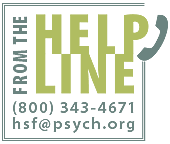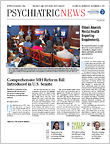The APA HelpLine has been receiving numerous calls from APA members who are concerned about the HIPAA-mandated switch from using ICD-9 diagnosis codes to using ICD-10 codes on all claims that occur on or after October 1, 2015. If you use DSM-5, you have all the information you need to successfully transition from ICD-9 to ICD-10 codes.
ICD Codes in DSM
While many psychiatrists use DSM to determine diagnoses, few realized the codes within DSM are ICD codes. In fact, the codes provided in DSM have always been ICD codes. ICD was developed by the World Health Organization to enable health care providers around the world to communicate in a way that permits the collection of disease data so that health trends, including epidemics, can be tracked and public health planning can be done on an international scale.
ICD provides a list of disease names and their corresponding codes, whereas DSM provides guidelines for selecting the most appropriate diagnosis The Centers for Disease Control and Prevention is responsible for ICD-CM, the U.S. version of ICD.
The Switch to ICD-10
There has been quite a bit of coverage in the media about the difficulty health care providers will have switching from ICD-9 to ICD-10 codes, and apparently a good deal of misinformation has been circulated by companies advertising educational opportunities to psychiatrists.
The switch to the ICD-10 codes does not demand any changes in the way that care is delivered; it merely requires that that care be coded differently.
DSM-5 includes both ICD-9 and ICD-10 codes. Figure 1 is an illustration taken from DSM-5. The five-digit ICD-9 code appears on the left, and the alphanumeric ICD-10 code is to the right of the ICD-9 code.
ICD-10 has more codes than ICD-9, enabling providers to be more specific in their diagnoses. For instance, ICD-9 has just one code for anorexia nervosa (307.1). ICD-10 provides a unique code for two types of anorexia nervosa— the restricting type (F50.01) or the binge-eating/purging type (F50.02). When the diagnosis has more than one code in ICD-10, as in this example, the new codes are provided in the text. (Figure 2 is an excerpt from the Feeding and Eating Disorders chapter of DSM-5 to show what these look like in the text.)
If you are still concerned about selecting the correct ICD-10 code, fear not. After prodding from the AMA, the Centers for Medicare and Medicaid Services announced that for one year Medicare claims will not be denied solely because of an incorrect ICD-10 code. The claims will be denied, however, if no ICD-10 code is submitted after October 1, 2015. It is not clear at this time whether commercial payers will follow suit.
For more information on using
DSM-5 to transition to ICD-10, view APA’s
free webinar.



